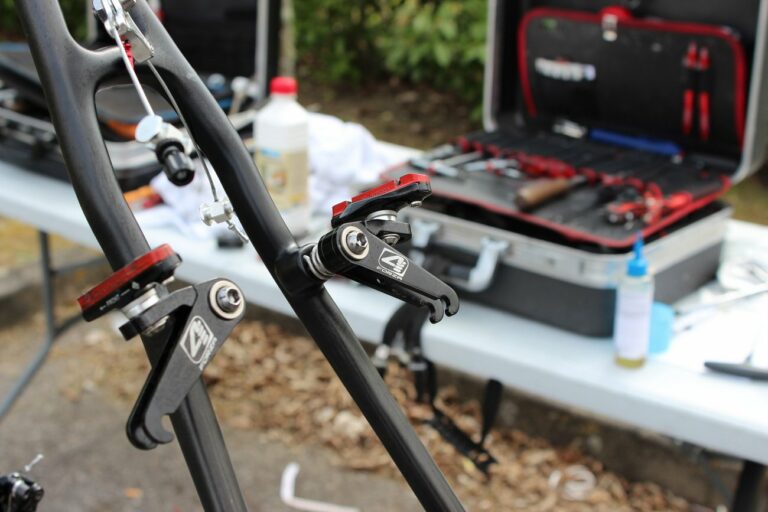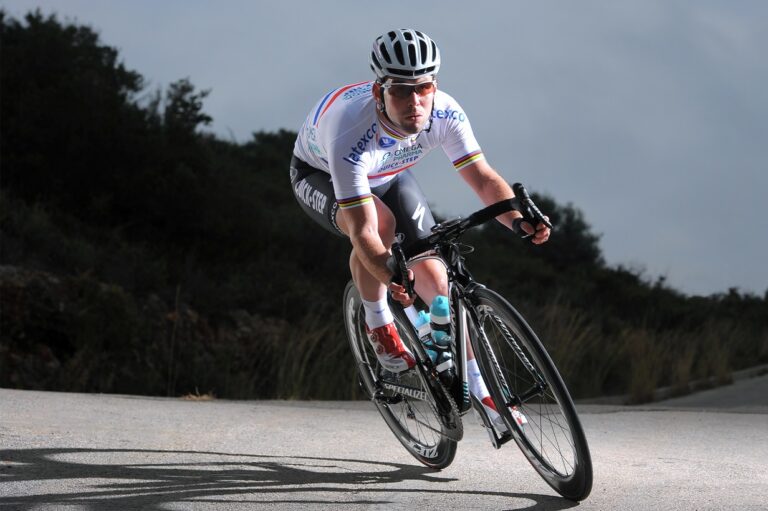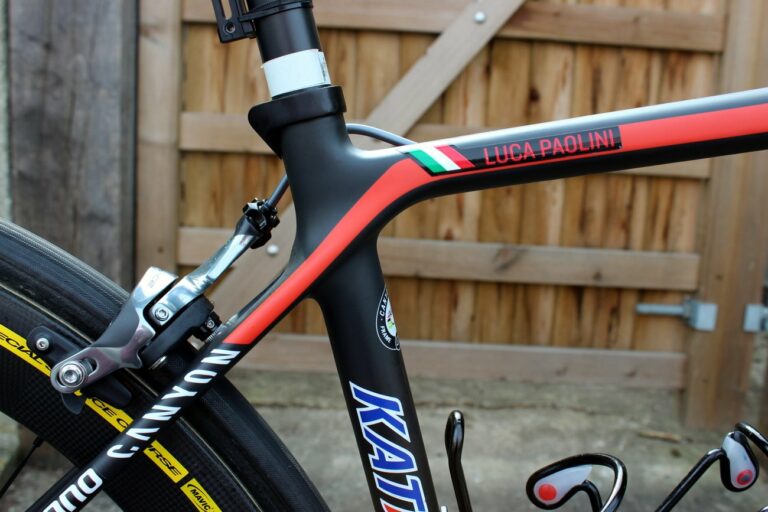He is a man who even today, a decade on from his death, continues to polarise opinion.
The last man to complete the Giro-Tour double in the same season, which he achieved in 1998, Italian great Marco Pantani is, to some, a hero and to others just another symbol of a dark era for professional cycling.
So to unravel the story of the Italian’s career and tragically short life is no mean feat – but it is exactly what film director James Erskine has attempted, with “Pantani: the accidental death of a cyclist” officially released on May 16.
Painting Pantani
“I watched Pantani’s racing and I remembered him vaguely in the back of my mind,” he explained to RCUK. “Then a friend of mine, who is a mad-keen cyclist, came to me one day and said, ‘you should make a film about Pantani’.
“He told me the story of Marco’s life, and I thought ‘that sounds great’ and he gave me a copy of Matt Rendell’s book and I read that and thought this is a fascinating guy to make a film about.”
Erskine’s previous works include “A Night in Turin”, an account of the England football team at the 1990 World Cup, and he has joined with Victoria Gregory, who worked on “Senna” and “Man on Wire” prior to their collaboration.
But despite their hugely impressive CVs, Erskine admits chronicling the life of Pantani was his biggest challenge to date.
It’s a complicated moral universe, cycling in the late 90s and earlier part of the 21st century, and that’s one of the things that we wanted to explore most in the film
“It was a real challenge to make the film,” he said. “It was very difficult to find the right material – we’ve spent two years making it, with a long time researching it and talking to people in Italy, his family and trying to unpick his story and tell the story that we really wanted to explore with Pantani.
“It’s the story of a young boy who comes from nowhere and becomes the King of the Mountains, and then the descent and why that happened and what happened.
“I think the film explores Pantani as a character and we look at him very clearly – while he played a part in his own downfall for sure, we also explore the idea of him being the victim of a sporting system.
“It’s a complicated moral universe, cycling in the late 90s and earlier part of the 21st century and that’s one of the things that we wanted to explore most in the film – how can this boy, who has so much prodigious talent and this great flair end up isolated, alone and dying in a hotel room. It’s clear he didn’t orchestrate his downfall entirely on his own.”
Complicated seems somewhat of an understatement when it comes to cycling in the 1990s, with new UCI president Brian Cookson still picking up the pieces of a hugely controversial era.
And the story of Pantani is just as complicated – winner on some of the toughest stages of the Giro d’Italia and Tour de France in his early career, the Italian was a world championship bronze medallist in 1995.
A life-threatening collision with a car followed, but Il Pirata returned to lead Mercatone Uno and achieved his famous Giro-Tour double in 1998.
The following year proved to be the beginning of the end however, after he was expelled from the Giro d’Italia while wearing the maglia rosa after recording a high haematocrit level.
A Tour return and two stage wins came in 2000, but suspicions of doping dogged his career and he did not win another professional race before his untimely death, from acute cocaine poisoning four years later.
Handling the ‘d-word’
The ‘d-word’ remains a huge taboo subject in cycling, and Erskine believes the film tries to unpick the tendency to blame doping only on individual athletes.
He explained: “We wanted to take Pantani and say, here’s someone who should be a great sporting hero – and let’s not forget his heroic achievements – but also, let’s look at what happened to him.
“Individuals are cogs in the system and they can be thrown at any point. It’s instructive that people always look to blame the sportsman as if they were the only individual involved in doping when actually, obviously, it’s a lot more complicated than that.
“That’s what the film tries to do – look at Pantani’s story in the context of what was going on in the period and explore it as a tragedy really – it is a tragedy and it deserves to be looked at in that scale.
“It is extraordinary, now, watching him and watching him as a kid – footage from when he was 12 years old.
“Pantani is a big story about sport to me, in the same way Senna was a big story and Raging Bull was a big story.”
And Erskine revealed he has already received positive feedback on the story.
For sure, lives are ruined by doping – lives are ruined for those who don’t dope, lives are ruined for those that have no choice but to dope, lives are ruined for people who failed a doping test
He said: “The interesting thing, when talking to people, is that this seems like a new story. Allegations of doping have always focussed on the individual and not on the system.
“That’s because, for people in power, perhaps that’s convenient. For sure, lives are ruined by doping – lives are ruined for those who don’t dope, lives are ruined for that have no choice but to dope, lives are ruined for people who failed a doping test.
“There are not enough checks and balances in the system, particularly back then. Even the tests that they had back then were bizarre.
“It’s definitely not an easy subject to explore.
“Let’s not forget that Pantani was never found guilty of doping in his lifetime. His family are very passionate to protect his legacy and make that point. We have worked closely with the family, with wanting to understand the man. It’s difficult.”
This is not just a film about doping however, something Erskine is keen to impress.
He added: “Obviously the film deals with doping, but I don’t want it be seen as a story of doping – it’s a story of an incredible cyclist, who ultimately lost in the end, lost everything.
“What greater sacrifice to sport than losing your own life?
“It was difficult but I hope what we’ve done through the film is express all those points of view within the film and to a certain extent leave the audience to have their own conclusion and own feelings about Pantani.”
The Pantani family
One family’s opinion of Pantani remain unchanged however, with his family keen to protect the legacy of their famous son.
For Erskine and Gregory it was another challenge to overcome – how to work with the family but not to work against their wishes.
“The family were nervous about the film, but they admired the film and I viewed it with them at the Italian release,” Erskine said.
“It’s never been straight-forward because they protect the reputation of their son, and they are still in the process of grief, but they agreed the film was a good reflection of their son and a story of all the possibilities.
“They accept he may have been a doper but don’t necessarily want to believe that. There are a lot of mysteries which they wanted to touch on – how he failed, why he failed.
“I would say they were very complimentary about the film – though it’s not the film they would have made. Mrs Pantani said one really nice thing to me, when she came up and said, ‘Marco, in his last days, said somewhere I know one day someone will come and tell my story the way it should be and maybe this film is that.’”
With high praise from the Pantani family however, where does the film rank alongside some of Erskine’s previous works?
Mrs Pantani said one really nice thing to me, when she came up and said, ‘Marco, in his last days, said somewhere I know one day someone will come and tell my story the way it should be and maybe this film is that
He concluded: “I think it is the best film I’ve made – it’s the hardest, but I think it really works as a bit of cinema.
“We went to great lengths to shoot things in the Alps and the Dolomites and all across Italy and France. I think it’s my strongest piece, yeah.”





